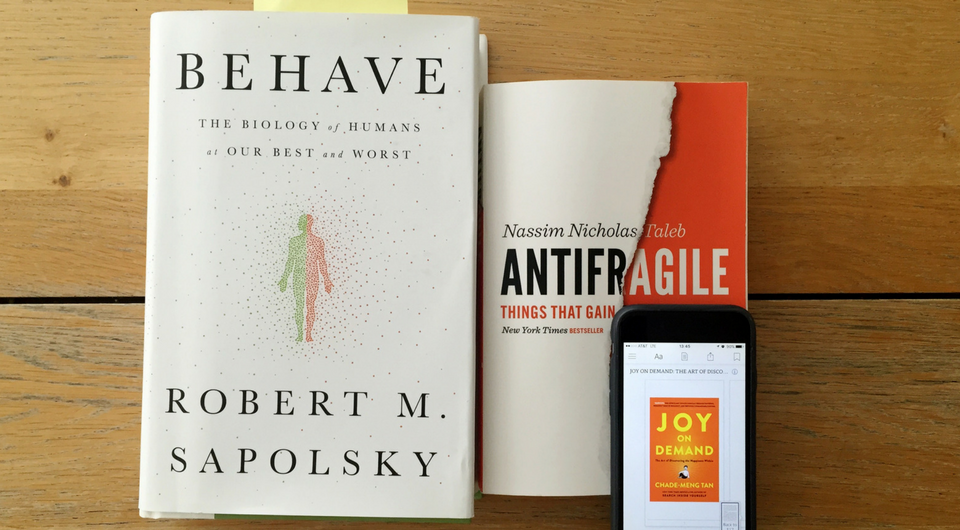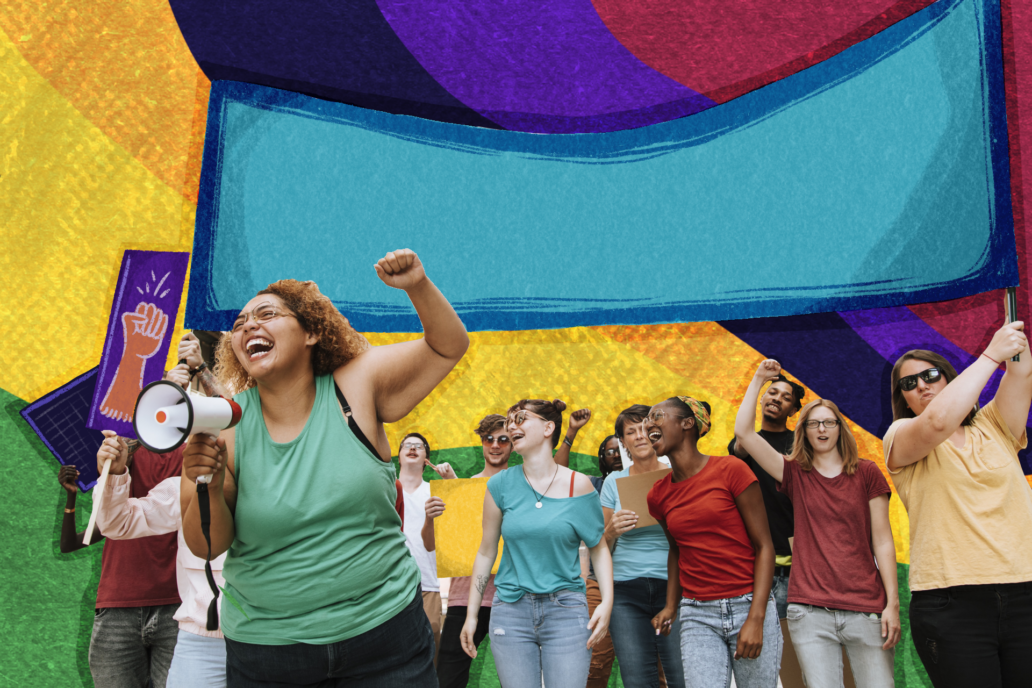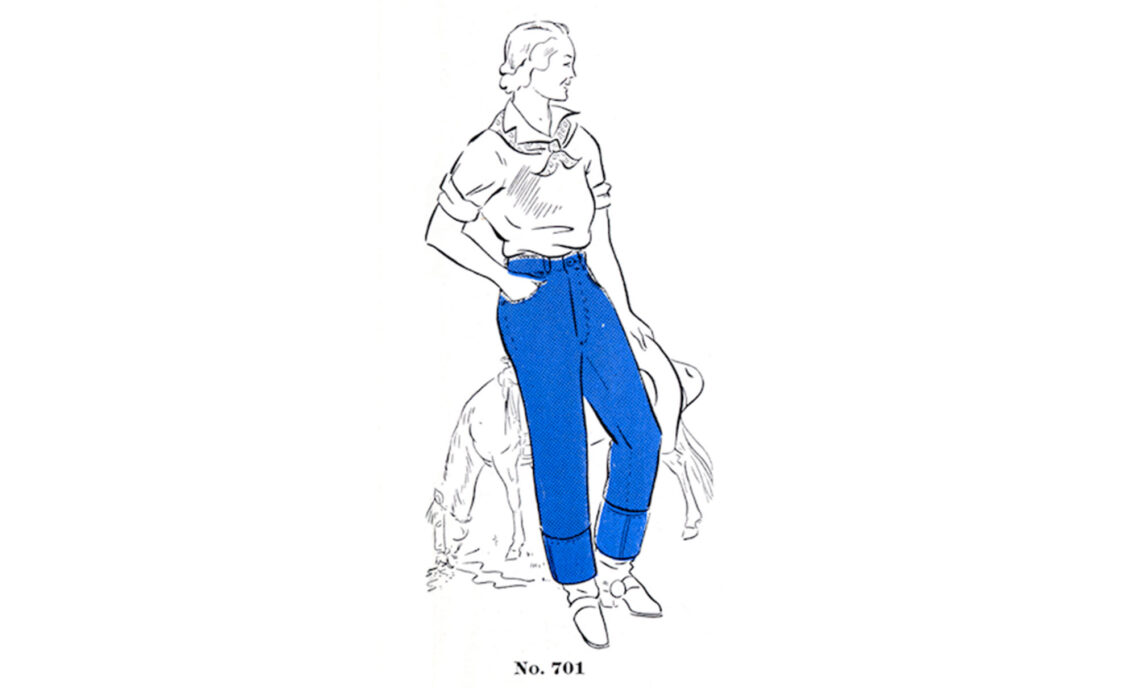Not all beach reads are created equal.
With summer in full swing, there’s no better time to beef up on that book to-do list – but that doesn’t mean they all need to be of the breezy variety. We checked in with our own Jonathan Cheung, head of design for Levi’s®, to see which books made his summer list to keep his brain active. Here are his top picks:
Knowledge is the macro-skill, the master key that unlocks everything. And if there’s three things you can do to increase your performance at work, it’s to read more, walk more and eat better! Your brain is like your body. Think “Good in = Good out.”
Behave by Robert Sapolsky
This book looks epic. He asks the simple but profound question, why do we do what we do? Sapolsky is a professor of biology and neurology at Stanford. He is a brilliant writer and teacher – he’s funny, engaging and would be the absolute dream dinner guest. I’ve learnt an enormous amount from him that I’ve found enlightening for my job – such as “desire” and its relationship to Dopamine and “anticipation” and the hedonic treadmill. He’s helped me knit together the cognitive psychology work from Kahneman & Tversky, Richard Thaler’s behavioral economics, and Walter Mischel’s work on delayed gratification. Sapolsky’s also been the absolute best teacher when it comes to stress and stress management.
Antifragile by Nassim Taleb
I read Taleb’s book, The Black Swan, several years ago when I was a merchant. I love things that are counterintuitive, contrarian and different to the norm. The best books make you see the world differently and The Black Swan certainly changed things for me. Reading Taleb is like stretching your brain. He makes you think about thinking.
Things are changing so fast now. Disruption is a word that seems to punctuate every business discussion happening all around us. Taleb felt like an early warning alarm, and with Antifragile I’m looking to learn about how to prepare for and handle shocks. Also, anyone who can write about philosophy, history, economics and then write the foreword for Mark Rippetoe’s weightlifting book is just cool.
Joy On Demand by Chade-Meng Tan
Happiness is a relative, rather than an absolute measure. It’s the balance between expectations and reality. In this book Chade-Meng Tan tees up a few points that should be of immediate interest to anyone:
- Happiness and prosperity are linked. Importantly, it works better in that order. We all know that rich doesn’t mean happy.
- You can train happiness.
- You can access the training very, very quickly. Three breaths.
Tan was one of Google’s earliest employees – I’m interested in Mindfulness through the eyes of an engineer and how it can increase your performance. And like Sapolsky and Taleb, Tan is quite funny. Because the exercises can be very simple and fast, I think this book can be ingested in little bites – so this one’s on my Kindle app
The Everything Store by Brad Stone
My formidable father-in-law just handed this book to me. I’m fascinated by Jeff Bezos and Amazon. More than 260 pages in already and I’m on a cliffhanger! I’ve learnt something from every page and there are many connections with Taleb and Sapolsk around behavior, choices, risk, adversity and change.
My personal reading hacks
Like many people, I want to be a voracious reader, but finding the time can be tricky, so over the years I’ve developed a way to extract precious knowledge from books without necessarily reading them cover to cover. I often combine the following hacks to extract the most out of a book quickly. There’s no excuse not to read!
- Blinkist. This app provides quick, 20-minute summaries of books, both in a written and audio versions. I use it on the commute to work, alternating with various podcasts and at lunchtime. You can easily cram a few books a week. I’ve found it very useful and may often buy the books after reading/listening to the “Blinks.”
- Listening to author interviews. This is a great way to get the gist of a book. Most of the time, the authors will be found discussing their books on Podcasts or YouTube. Listening to them talk is a great way to help memorize the knowledge.
- Reading reviews. There’s always great reviews on books, often summarizing the key points. You can then just look up the parts you want immediate access to by using the index.
- Take notes. I’ve found this very useful when going back to a book, whether it’s a hard copy or on Kindle. Highlight specific quotes or passages. Connect the dots from book to book, insight to insight.
- Exchange reading lists. Creativity is knowledge + imagination + action. Here’s my challenge – and it takes a little pinch of action: This week ask five people “have you read anything interesting lately?” I guarantee you’ll unearth some insights that will make you more creative and a little wiser. Share your knowledge and stay curious!
Like this story?
Sign up for the Unzipped newsletter to get the best of the Unzipped blog — company news and views, employee profiles, innovation and sustainability stories, behind-the-scenes and Archives highlights — sent straight to your inbox weekly.







